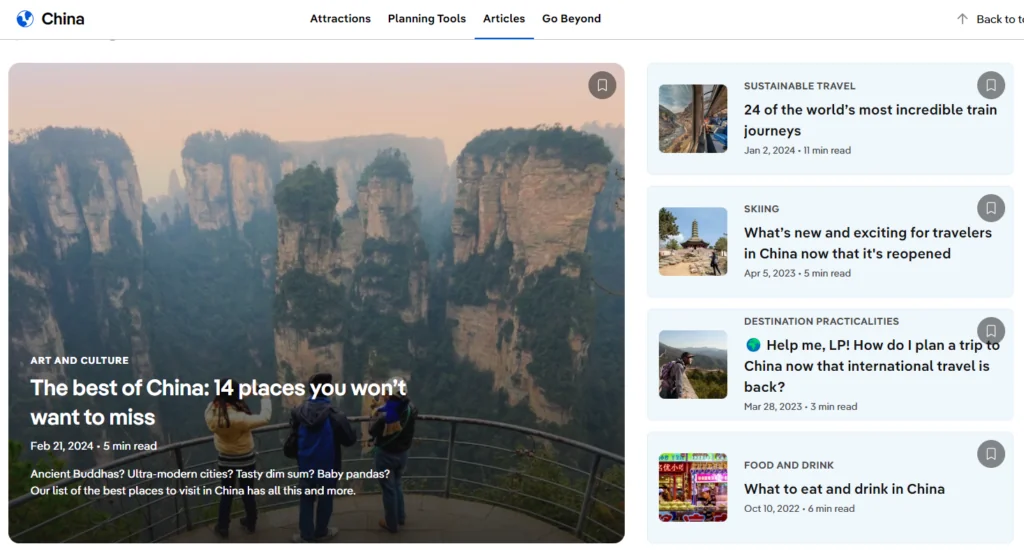On 26 June, Lonely Planet’s WeChat official account released an article. It stated: “Due to the impact of the past Covid-19 pandemic and the company’s strategic adjustments, Lonely Planet closed its office in China and ceased its publishing business in China. All of Lonely Planet’s official social media accounts in China, including WeChat, Weibo (China’s Twitter equivalent), Xiaohongshu (RED), and Zhihu (China’s Quora equivalent), have stopped updating.”
This news comes after the Chinese edition of the Lonely Planet magazine stopped publication in 2022. However, users can still buy previously published Chinese titles on websites like JD.com, Dangdang, and Duozhua Fish. Since 2013, Lonely Planet has published over 300 Chinese-language travel guides and travel reading materials, achieving millions of copies in cumulative sales.
Lonely Planet is the world’s largest publisher of privately owned travel guides. The firm insists on running environmentally certified printers and paper and has never included ads in its guidebooks. Many netizens have expressed their nostalgia on social media about the closure. The Weibo hashtag #Lonely Planet all official social media accounts have ceased to operate# (孤独星球所有官方社媒账号已停更) garnered 4.18 million views.
One netizen said, “Lonely Planet used to be the essential reading material for young people who wanted to be backpackers and one of the most widely recognised travel guides of its time. Unfortunately, it has not adapted to today’s pace of life. The young people who aspired to faraway places at the beginning have been caught up in the adult world of work flavour (班味) and can’t breathe.”
Some consumers are comparing Lonely Planet with the social media platform Xiaohongshu. Xiaohongshu specialises in images and short videos and receives a lot of user interaction and activity. That makes Xiaohongshu an important channel for the travel business. But the two most frequently used words on Xiaohongshu are “avoidance of problems” (避雷), since many users avoid things that do not suit them and are regarded as “troubles” depending on their tastes, then produce posts that are neither objective nor unbiased. Furthermore, many users receive advertising fees from merchants before posting, which might affect the audience viewing the guide. Netizens believe that traveling with a Lonely Planet book adds a random and unexpected element that makes the trip more interesting.

But the reputation of Lonely Planet abroad is fading. Having been acquired by now parent company Red Ventures for roughly $50 million in 2020, it later concentrated on cost-cutting and has even heavily relied on AI-generated content to fill its pages. Less profitable products like travel forums have closed in the travel industry, the pre-acquisition editorial team has been reshuffled several times, and the quality of the content has significantly declined.
The closure of Lonely Planet in China most certainly affects foreign visitors heading to the country. With so many tourists using China’s loosened visa policy, #Chinatravel# has become a hot topic this year. Most visitors travelling to China alone have a paper copy of Lonely Planet or download TripAdvisor, and Quora, and view travel schedules advised by bloggers on YouTube. But since the closure, the web version of travel in China remains unchanged from February, therefore the content is no longer applicable. Similar problems have arisen on TripAdvisor, Quora, and YouTube whereby the suggested paths are generic and lack suggestions, and don’t include the most recent and intriguing locations to visit.









